In today's visual-centric digital landscape, the demand for top-notch photo editing software is more prevalent than ever. A simple Google search for "best photo editing software" yields a plethora of results, highlighting the undeniable truth that photo editing has become an integral part of the creative process. Whether you're a seasoned professional or a budding enthusiast, the importance of refining your images cannot be overstated. In this comprehensive guide, we've meticulously curated a list of the finest photo editing software available, encompassing both paid and free options, catering to the diverse needs of photographers at every skill level.
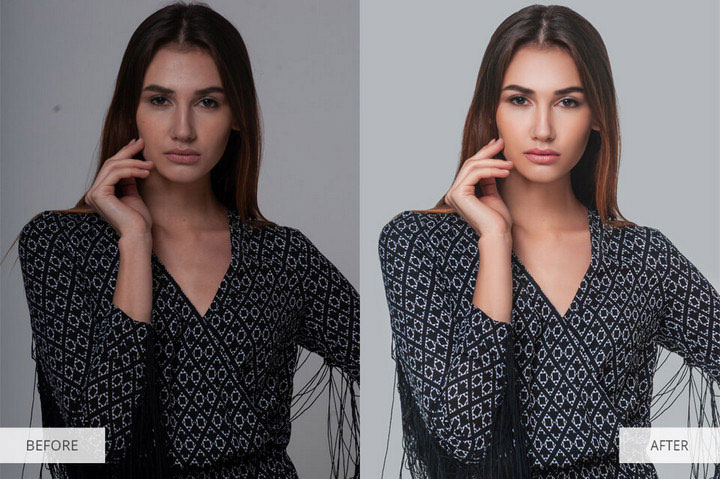
📢 Low Quality Photos? Enhance Them with VideoProc Converter AI
For those seeking a cutting-edge solution to elevate their photo resolution and quality, look no further than VideoProc Converter AI. Breaking new ground, VideoProc introduces an innovative feature – AI-powered Super Resolution. This groundbreaking technology empowers users to effortlessly upscale, enhance, denoise, restore, and sharpen their old, low-res, or low-quality photos to remarkable 4K and 8K resolutions.
Discover the possibility of image quality enhancement with VideoProc Converter AI's unparalleled capabilities.
1. VideoProc Vlogger - Best for Editing Pictures in Videos
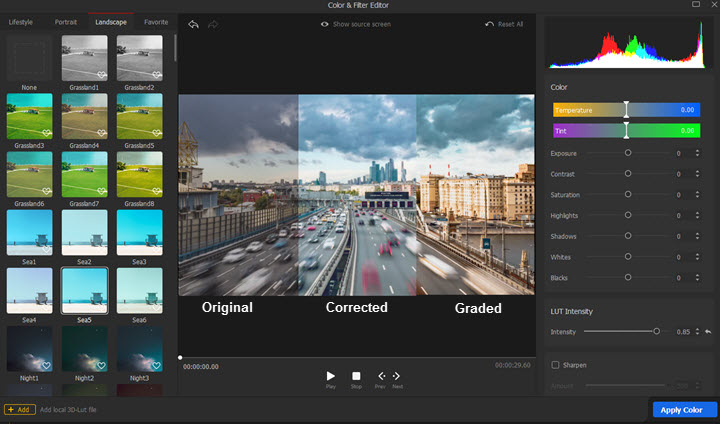
VideoProc Vlogger is actually a free video editing software with the capability of editing photos. Best for editing pictures in videos, it's compatible perfectly with both Mac and Windows operating systems.
Besides adjusting photo exposure, contrast, saturation, white balance, HSL values, and other standard features, VideoProc Vlogger offers about 90 built-in filters for quick effects. What's really cool about VideoProc Vlogger is that you can import and use your own 3D LUTs. That's usually reserved for paid editing software.
Multitrack editor as VideoProc Vlogger gives utmost flexibility. You are allowed to add up to 999 image layers by adding multiple overlay tracks. It's as easy as 1-2-3 to create personalized picture-in-picture effects and photo collages with VideoProc Vlogger.
VideoProc Vlogger can handle photos in almost any format without third-party codec packs, including JPEG, PNG, JPG, HEIC/HEIF, 360 Photo, etc. 10-bit HDR photos from iPhone and RAW files are also supported. With the advanced GPU acceleration, VideoProc Vlogger will deliver buttery smooth 4K/HDR photo processing without compromising quality.
So if you are editing photos for use in videos, VideoProc Vlogger would be your best choice.
Price: Free
Pros:
- Compatible with almost all file formats
- Offer both basic and advanced color correction and color grading features
- Support importing 3D LUTs files
- Hardware acceleration available
- Capable of editing videos
Cons:
- Not enough filters and effects
2. Adobe Photoshop – Industry Standard
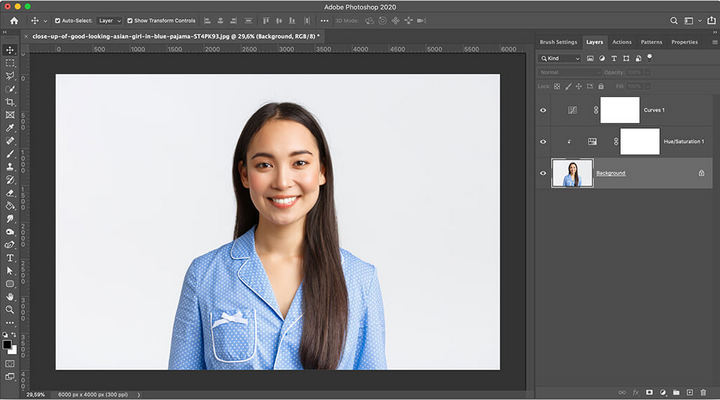
Adobe Photoshop is an extremely robust professional picture editor. It is used by designers, amateurs, artists, developers of 3D graphics textures and just those who know a lot about creating photorealistic images.
There are no specific effects, you are limited only by your skills, knowledge and imagination. By combining different effects/filters, you can create something completely new.
Photoshop is a raster graphics editing software that works with layers and contains numerous tools to perform all sorts of manipulations related not only to images but also video and audio. Among these tools, we find selection, cropping, editing, drawing, coloring, as well as tools to work with text. Besides, you can use additional tools when editing photos, such as Photoshop Actions Collection, textures, brushes, overlays and fonts.
Moreover, you can download Adobe Photoshop free to find out if this picture editing software is suitable for you. Then you can purchase it via a monthly subscription.
Price: Free Trial, then $9.99/month
Pros:
- Numerous actions, overlays, textures, brushes
- Layers are supported
- Compatible with all file formats
- Extensive picture enhancement toolset
Cons:
- Expensive
- Difficult to master
3. Skylum Luminar – Over 100 Smart Filters and Presets
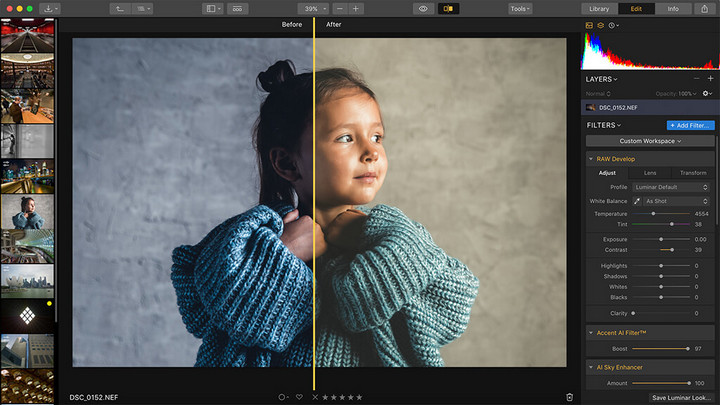
Skylum Luminar is a semi-professional picture editor that boasts a vast array of integrated picture editing algorithms and visual effects applied to them. This graphic editor is designed for two platforms – Windows and macOS, so it covers the widest possible range of consumers, unlike similar photo editing software.
Aside from standard functions and settings for picture post-production, including manual editing of color, light, contrast, saturation and photo dimension (including layer-by-layer), Luminar offers its users 45 smart filters and 67 advanced presets to quickly change and compare different variants of one picture.
By the way, if you don't want to waste time on editing pics, you can approach special services, for example, the FixThePhoto image editing service. They are editing all kinds of pictures and can perform any manipulations with your shots – from color correction to the restoration of old photos.
Price: Free Trial, then from $89.00
Pros:
- May serve as a plug-in for Lightroom and Photoshop
- Layers are supported
- Immediate changes with Luminar Looks
- Remarkable color correction
Cons:
- Expensive
- RAW editing capabilities could be better
4. Adobe Lightroom – Deep Color Correction
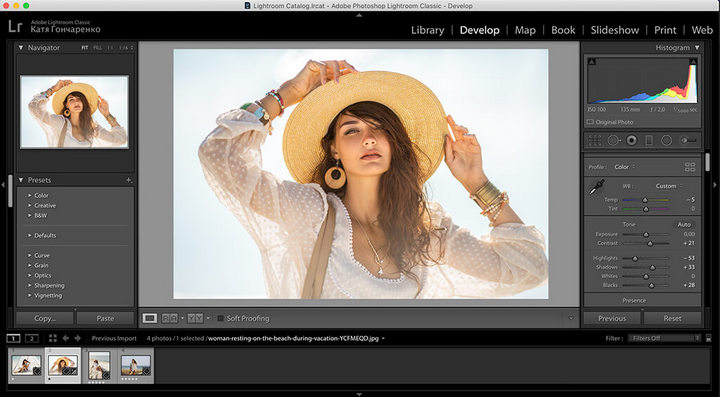
Adobe Lightroom meets the need for photographers in a working application that lets you quickly and efficiently perform color correction of pics. With Lightroom it is possible to manage all your pictures, print them out, view them as a slideshow, and place them in interactive web galleries that are very easy to create.
The main peculiarity of Adobe Lightroom is full support for the RAW format, as well as the ability to work directly with files of this format. Besides, this image editing software fully supports the work with the JPEG format.
Price: Free Trial, then $9.99/month
Pros:
- Plenty of presets and brushes available
- Batch photo editing
- Sophisticated color correction
- Picture organization capabilities
Cons:
- Monthly subscription
- Restricted number of imported files
For your reference, RAW is what used to be called a "negative" in photography, i.e. the original digital image. Apple introduces ProRaw photo format and offers photographers the flexibility of raw editing since iPhone 12 Pro / iPhone 12 Max.
5. GIMP – Free Open-source Photo Editor
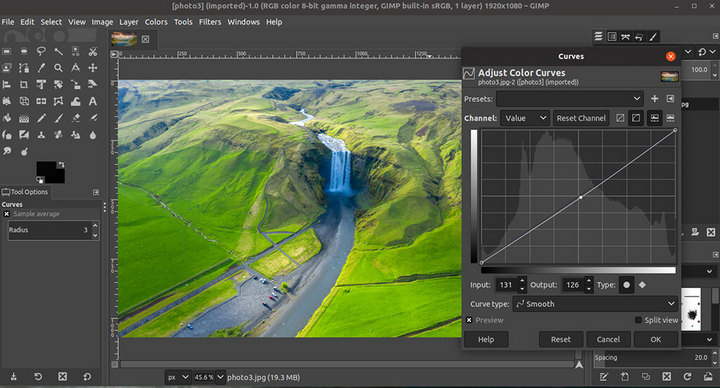
GIMP is a robust free, freely distributed software for creating, assembling and editing images, drawings and photos. It supports bitmap graphics and vector graphics (partially).
Use this photo editing software to create and edit digital graphics and photos, drawings and logos, resize pictures, manipulate colors, combine images using layers, erase image elements and convert images into different file types.
Price: Free
Pros:
- Extensive feature and toolset
- Open-source software
- Compatible with numerous file types
- Customizable functionality
Cons:
- May lag occasionally
- Lacks batch editing capability
6. Fotor – For Beginners
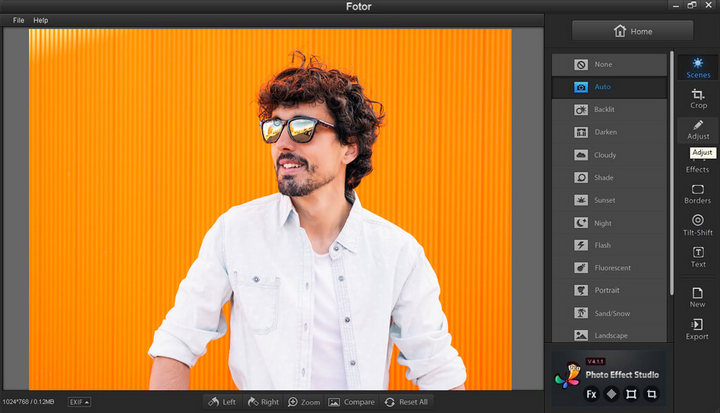
Fotor is a picture editor with options for creating collages and batch processing. It grants the user the opportunity to purchase the Pro version. Advertising banners and watermarks on images in the Free version act as factors that encourage the "upgrade".
This photo editing software includes both the common, most frequently used and primary tools – cropping, framing, color correction, brightness and contrast adjustment, as well as less widespread options, such as adding textures, borders, frames and various effects.
Fotor developers offer a separate subsection for face retouching. With its help, users can eliminate the red-eye effect in shots, add blush, whiten teeth, hide wrinkles, creases, moles and more.
Price: Free limited version, Pro - $3.33/month
Pros:
- Web, desktop and mobile versions
- Color correction within minutes
- Awesome effects and filters
- Offers a social network
Cons:
- No advanced picture retouching in free version
- Disturbing ads
7. Colorcinch - Photo Editing Made Simple
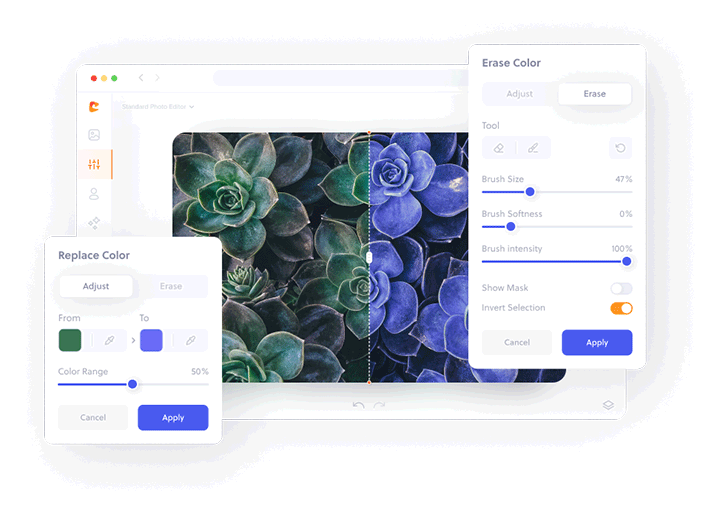
Colorcinch is a user-friendly photo editor that makes editing your images a breeze. The tool includes a range of essential features such as replacing colors, adjusting vibrance, cropping, resizing, and removing backgrounds. Colorcinch offers a variety of adjustable AI-powered filters and effects that allow you to transform your images into works of art. You can add texts, watermarks, overlays, graphics, and icons to make your images truly unique. You can also apply blend modes, add vignettes, posterize photos, and create instant color splash effects.
Colorcinch is made to be simple, intuitive, and productive. You don't need any coding or Photoshop skills to use it. It's no wonder why Colorcinch has become a favorite among photographers and casual users alike.
Price: Free, Premium -$8.99/month ($59.88 if billed annually)
Pros:
- Web, desktop, online and offline version
- Exclusive library of photo filters and artistic AI effects
- Essential photo editing tools
- Incredible collection of stock photos, graphics & icons
- Very intuitive, achieve stunning results with just a few clicks
Pros:
- Lacks batch editing capability








